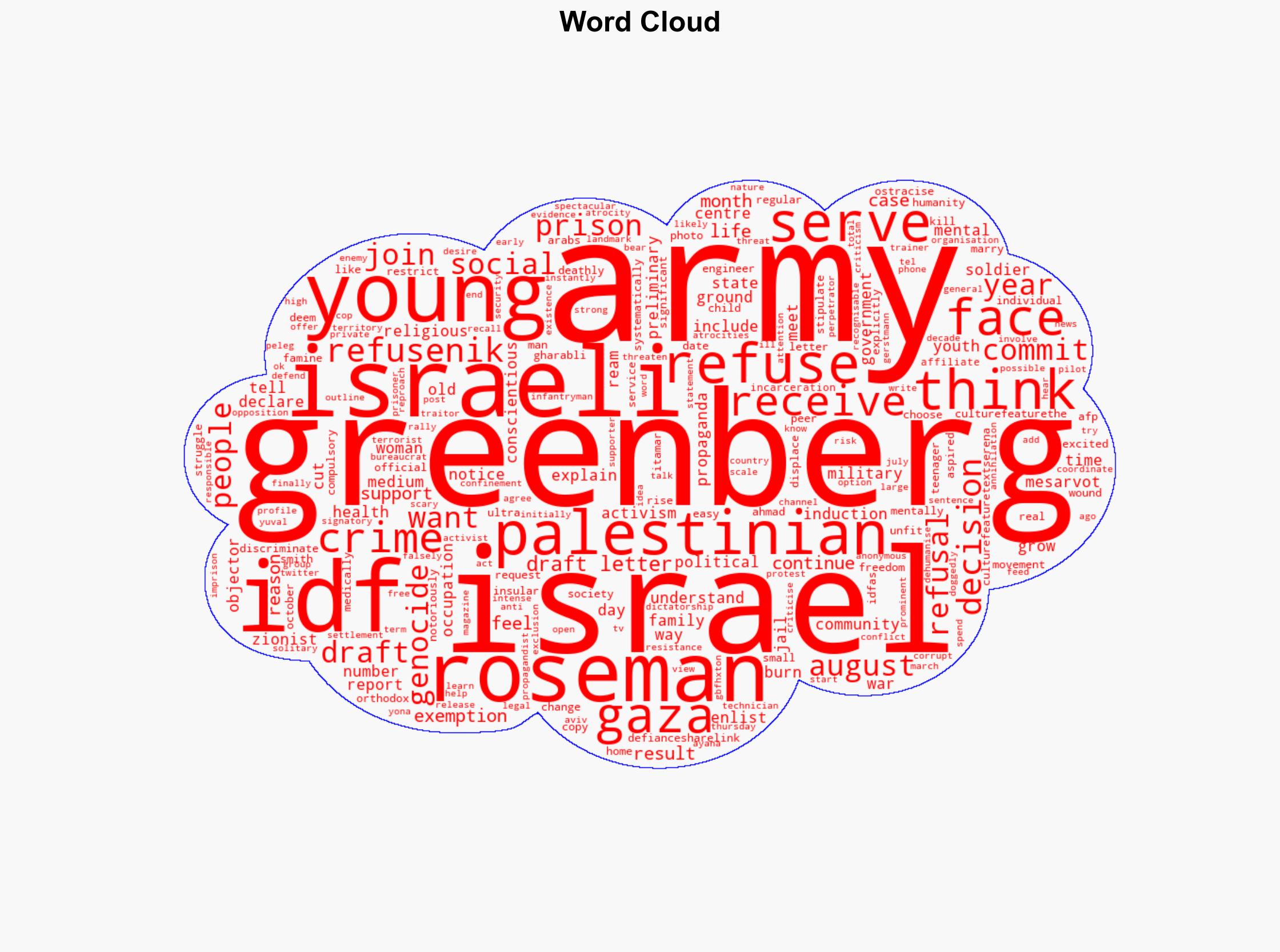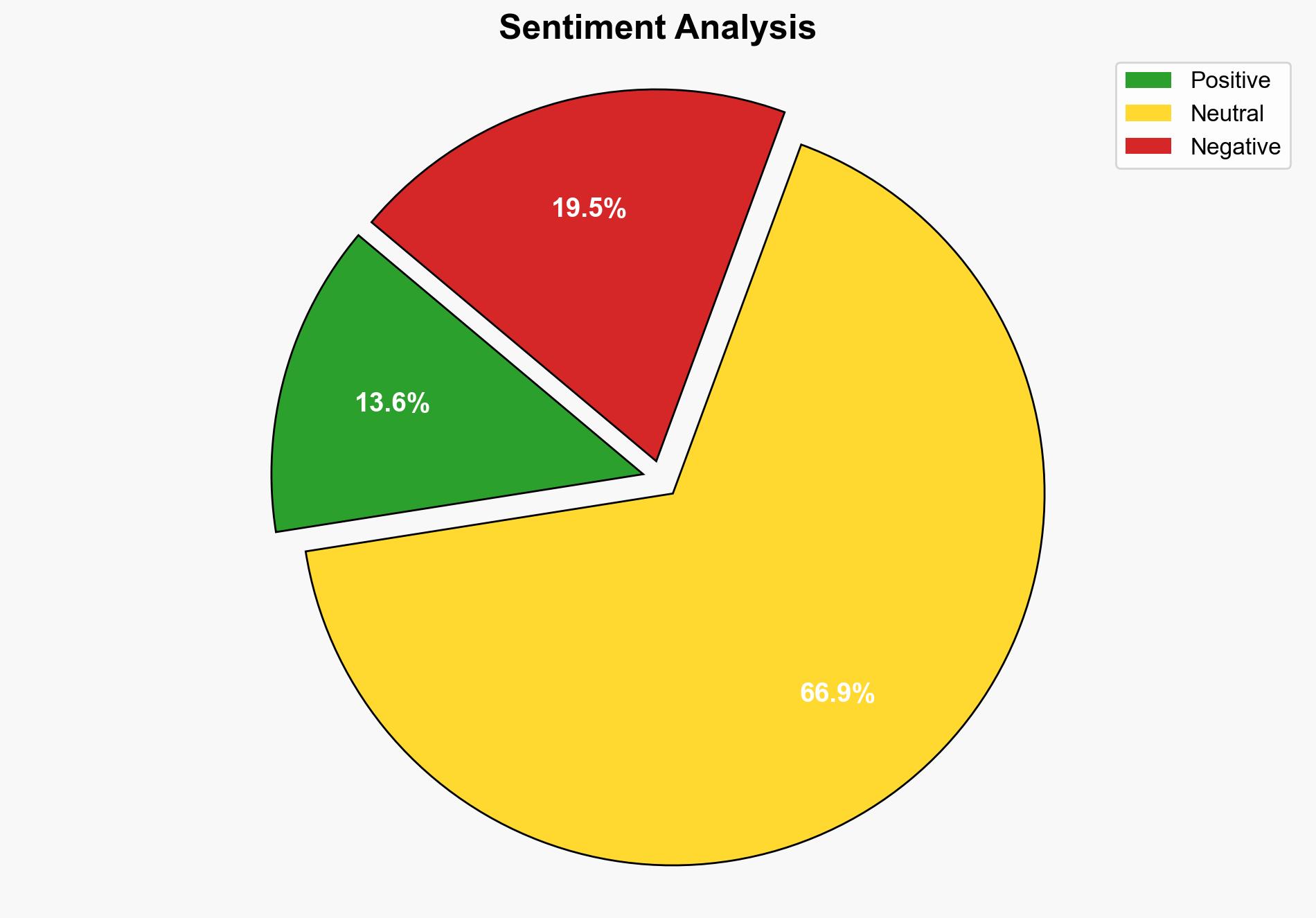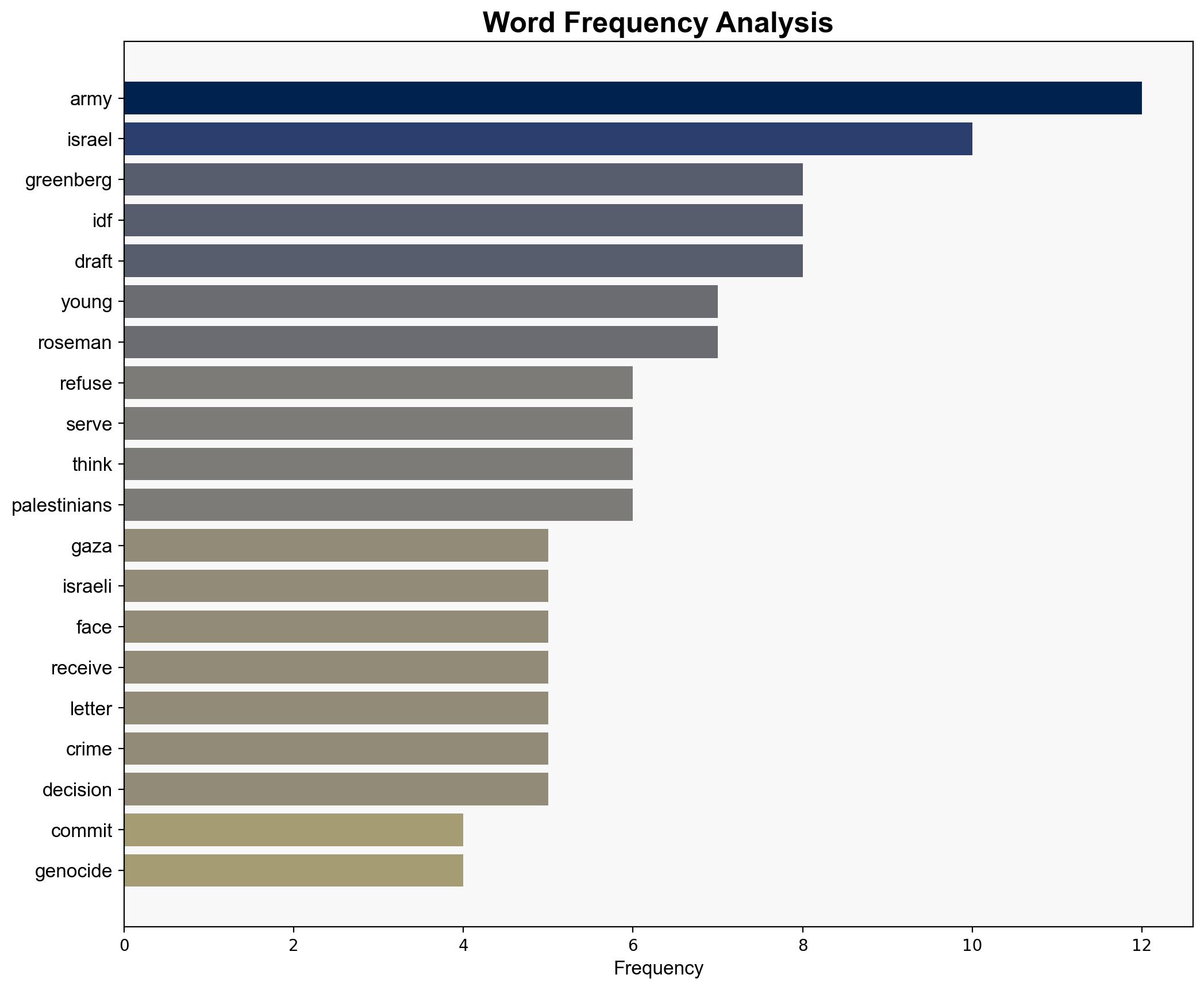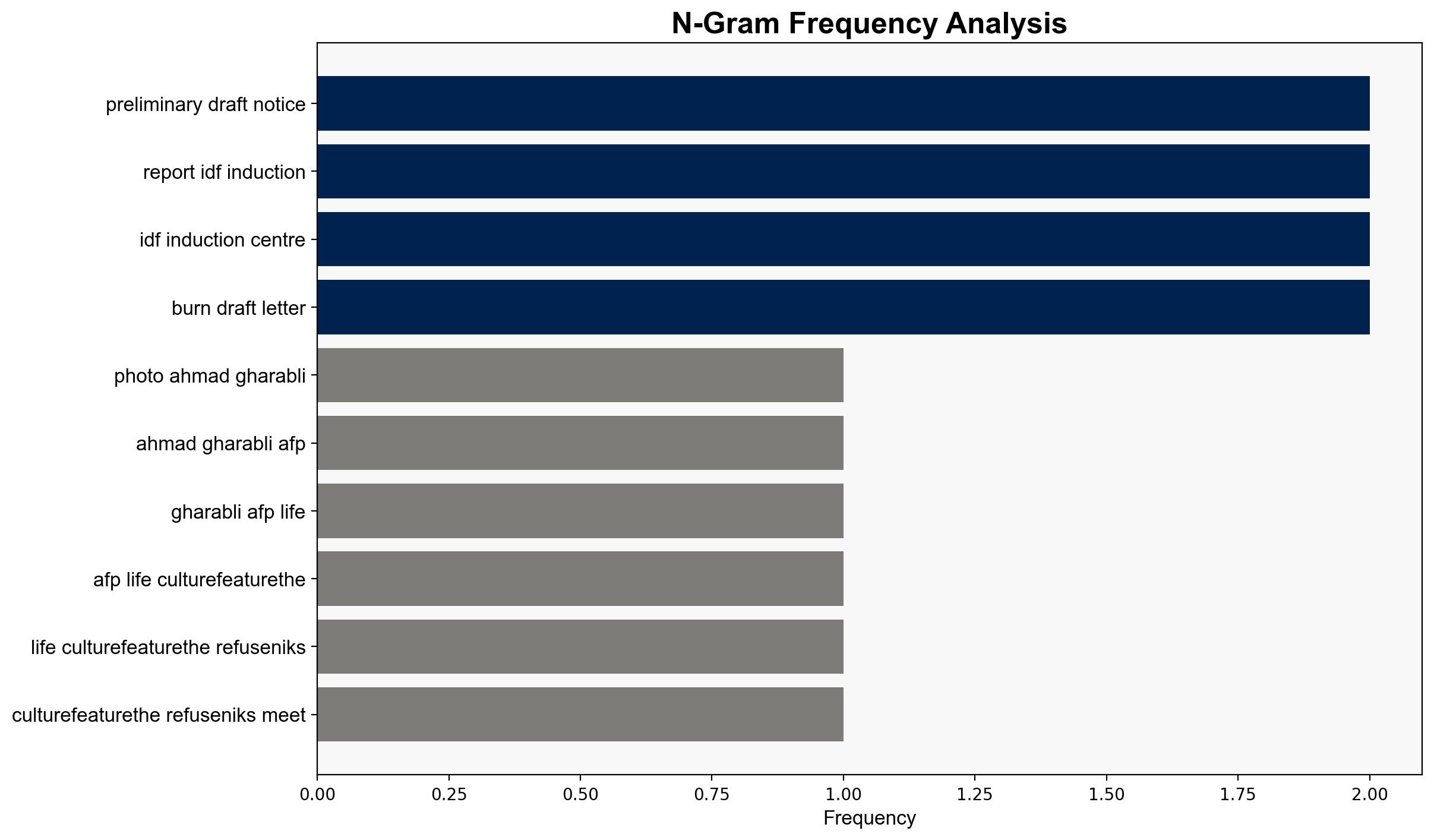The refuseniks Meet the young Israelis choosing jail over the IDF – Dazed
Published on: 2025-08-08
Intelligence Report: The refuseniks Meet the young Israelis choosing jail over the IDF – Dazed
1. BLUF (Bottom Line Up Front)
The phenomenon of Israeli youth refusing military service represents a growing ideological shift that could influence broader societal and geopolitical dynamics. The most supported hypothesis is that these actions are driven by a combination of ethical opposition to military policies and a broader anti-occupation sentiment. Confidence level: Moderate. Recommended action: Monitor the movement’s growth and potential impacts on Israeli military policy and regional stability.
2. Competing Hypotheses
1. **Ethical and Political Opposition Hypothesis**: The refusal to serve is primarily driven by ethical objections to Israeli military actions and policies towards Palestinians, reflecting a broader anti-occupation sentiment among Israeli youth.
2. **Social and Cultural Influence Hypothesis**: The refusal is influenced more by social and cultural factors, including peer influence and the desire to align with global progressive movements, rather than direct opposition to military policies.
Using ACH 2.0, the first hypothesis is better supported due to explicit statements from individuals like Itamar Greenberg and Yona Roseman, who cite specific political and ethical reasons for their refusal.
3. Key Assumptions and Red Flags
– **Assumptions**: It is assumed that the refuseniks’ actions are primarily ideologically driven rather than opportunistic or influenced by personal circumstances.
– **Red Flags**: Potential bias in the source material, which may emphasize the ideological aspects while underreporting other motivations. There is also a lack of quantitative data on the movement’s size and impact.
4. Implications and Strategic Risks
The movement could lead to increased domestic tension and influence Israeli military policy if it gains significant traction. Internationally, it may affect Israel’s image and diplomatic relations, particularly with allies concerned about human rights issues. Escalation risks include potential crackdowns on dissent and increased polarization within Israeli society.
5. Recommendations and Outlook
- Monitor the movement’s growth and narrative through social media and public statements.
- Engage with Israeli policymakers to understand potential shifts in military service policies.
- Scenario Projections:
- Best: The movement leads to constructive dialogue and policy reforms.
- Worst: Escalation of domestic unrest and international criticism.
- Most Likely: Continued small-scale protests with gradual policy considerations.
6. Key Individuals and Entities
– Itamar Greenberg
– Yona Roseman
– Ayana Gerstmann
– Yuval Peleg
7. Thematic Tags
national security threats, regional focus, human rights, military policy, social movements





